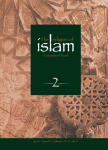The Religion Of Islam vol.2

Chapter XXII - Transmission of Hadîth
In Prophet's Lifetime
The transmission of the practices and sayings of the Prophet from one person to another became necessary during the Prophet's lifetime. In fact, the Prophet himself used to give instructions with regard to the transmission of what he taught. Thus, when a deputation of a certain tribe came to wait upon him in the early days of Medina, the Prophet concluded his instructions to them with the words "Remember this and report it to those whom you have left behind " (1) Similar were his instruction in other cases "Go back to your people and teach them these things.”([1])
There is another report according to which, on the occasion of a pilgrimage, the Prophet, after enjoining on the Muslims the duty of holding sacred each other’s life, property, and honour, added: "He who is present here should carry this message to him who is absent". ([2]) Again there is ample historical evidence that whenever a people embraced Islam, the Prophet used to send to them one or more of his missionaries, who not only taught them the Koran but also explained to them how the injunctions of the Holy Book were to be carried out in practice. It is also in record that people came to the Prophet and demanded teachers who could teach them the Koran and the Sunna, saying. "Send us men to teach us the Koran and Sunna.” The companions of the Prophet knew full well that the injunctions and practices were to be followed, should no express direction be met with in the Koran. It is related that when Mu’az ibn Jabal on being appointed governor of Yamen by the Prophet, was asked how he would judge cases, his reply was, “By the Book of God' again he was asked "What he would do if he did not find a direction in the Book of God” he replied, “By the Sunna of the Prophet of God. The Sunna was, therefore., recognised in the life time of the Prophet as affording guidance in religious. matters
The popular idea in the West that the need for Sunna was felt and the force of law given, to hadîth, after the death of the Prophet, is opposed by the facts. ([3])
Why Hadîth Was Not Generally Written
It is, however, a fact that the saying of the Prophet were not generally written, and memory was the chief means of their preservation.
The Prophet sometimes objected to the writing down of hadîth. But this disapproval clearly shows nothing else but fear lest hadîth be mixed up with the Holy Koran. There was nothing essentially wrong in writing down hadith, nor did the Prophet ever forbid its being done. Nor was memory an unreliable means for the preservation of hadîth, for the Holy Koran itself was safely preserved in the memory of the disciples of the Prophet in addition to committing it to writing. In fact, had the Koran been simply preserved in writing, it could not have been handed down intact to future generations. The aid of memory was invoked to make the purity of the text of the Koran doubly sure.It is, however, a fact that the saying of the Prophet were not generally written, and memory was the chief means of their preservation.
The Arab had to wonderfully retentive memory and he had to store up his knowledge of countless things in his memory. Indeed, before Islam, writing was but rarely resorted to, and memory was chiefly relied upon in all important matters. Hundreds and even thousands of verses could be recited from memory by one man, and the reciters would also remember the names of the poets trough whom these verses had been transmitted to them. It is recorded of a later renowned transmitter, Asma’i by name, that he learned twelve thousand verses by heart before he reached majority. Another transmitter was reported to have recited verses from a hundred poets in a single sitting. Sha’bi, a famous transmitter, proved that he could continue reciting verses which he knew by heart for a month; and these verses were the basis of the Arabic vocabulary and even of Arabic grammar.([4])
([1]) Bukhari reports on “hadith”
([3]) Muir writes in his introduction to "The life of Mohamed':- "Sarcely was the Prophet buried when his followers resolved to adopt the custom (sunna) of Mohamet, that is his sayings and practices as supplementary of the Koran (page XXIX) And even a recent writer, Guillaume, writes in the "Tradition of Islam":- “While, the Prophet was alive he was the sole guide in all matters whether spiritual or secular. Hadîth or tradition in the technical sense may be said to have begun. at his death" (p. 13)
[4]) ) It was in this safe custody (memory) that the beautiful poetry of the pre-Islamic days had been kept alive and intact.
